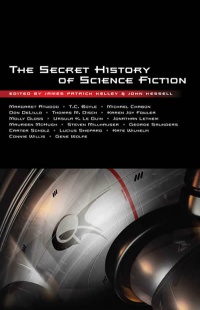Peggy at Biology in Science Fiction recently asked, “Could We Evolve Into The Culture?” As in The Culture from Iain M. Banks’ sf novels (which I’ve not yet had the pleasure to read, an error I mean to correct eventually). In her article she refers to an e-mail Q&A at Banks’ website in which he answers questions from readers. One reader asks what Banks thinks is the most important development humanity could make in order to advance to a Cultured society; Banks answers:
Genetically modifying ourselves, I suspect. Finding the set of genes that code for xenophobia in general – these days usually expressed though sexism, racism, homophobia, anti-semitism, Islamophobia, Romaphobia and so on (and on, and on) – and knocking them out. Possibly then we’ll be nice enough for the Culture or something like it.
That’s a good answer, and I can’t help but notice it nicely parallels this comment from Octavia Butler from the racism essay I posted about a while back:
Simple peck-order bullying is only the beginning of the kind of hierarchical behavior that can lead to racism, sexism, ethnocentrism, classism, and all the other “isms” that cause so much suffering in the world.
Both authors point out that there is some general underlying facet of human nature (whether you call it xenophobia or hierarchical tendencies or whatever) that is behind a wide range of nasty human behavior. Is it something that can ever be tied to a certain complex of genes? Is it something that could be engineered out of us? I have no idea, but I suspect it’s very possible.
Another reader asks Banks about his views on literary manifestos or movements, to which he replies:
I’m always a bit sceptical about any movement or even allegedly coherent group of writers really existing for much longer than whatever lunchtime the idea of said movement was dreamt up.
Hehe… yeah, I think there’s some truth to that.
Answering the question of what kind of movement he would create if he had to create one, Banks says:
If I was going to have a manifesto – just for the sheer flipping heck of it – I’d draw up one that denigrated cliché, demanded greater realism in narrative and bound its adherents to resolutely refuse to acknowledge the existence, even as handy plot devices, of any form of supernatural or spiritual force whatsoever.
Now THAT’S my kind of literary movement! (Anyone familiar with my book reviews will know I’m usually not happy seeing supernatural elements in science fiction.) Very intelligent fellow, this Banks. And it’s now more definite than before: I WILL be reading some of his work at the earliest opportunity.


















